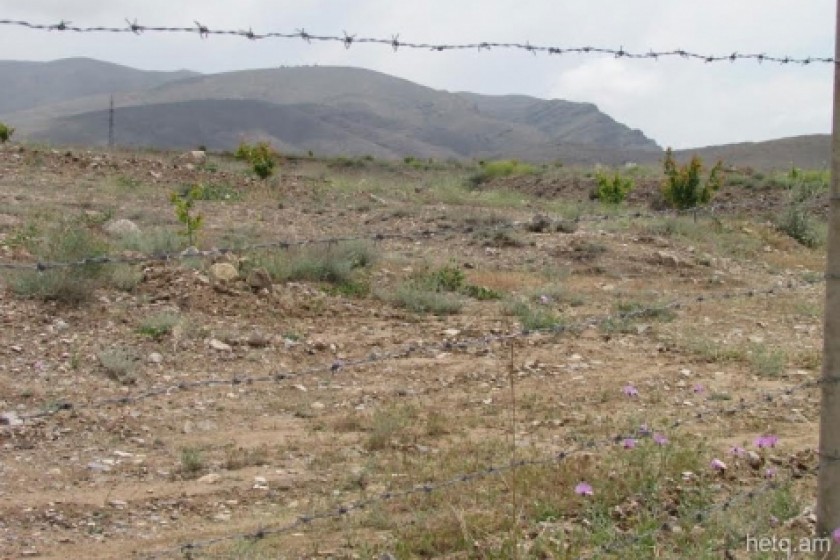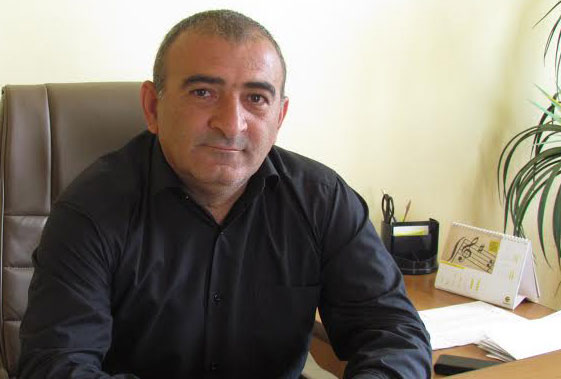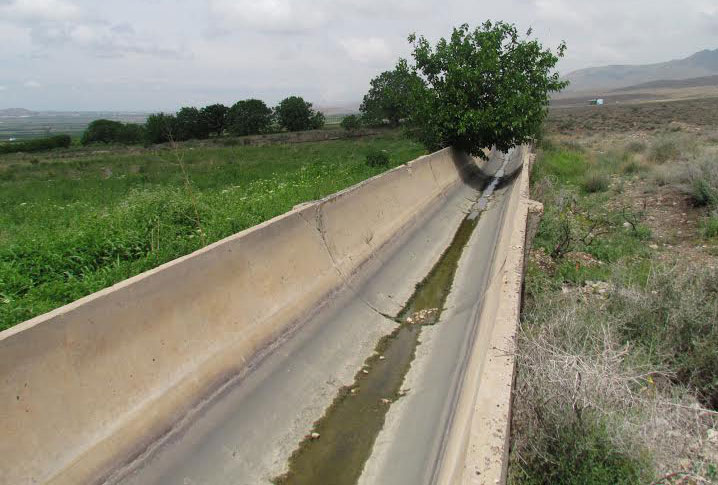
Surenavan: Where Apricots in Armenia Mature First
Apricots in Armenia mature first in the village of Surenavan in Ararat Province. For this reason, apricot orchards are given special importance here. The apricots aren't cheap — regardless of the amount, villagers have no problem selling their harvest. "Those who want to establish an apricot orchard, they're the ones who express interest in the land; the others are not interested," says head of Surenavan Karo Karapetyan, pointing to the the dozens of hectares of apricot orchards established in recent years. Land owners did not scorn the thought of investing in the rocky, arid lands — they are sure the orchards will return their investment in a short period of time.
According to the village leader, the cultivation and sale of apricots is Surenavan inhabitants' main occupation, and no one emigrates from the village. But the frost that struck March 29–31 this year completely destroyed the crops, which is to say, the possibility of making a living. According to the regional administration, 261.8 hectares of apricot orchards in Surenavan were affected by the frost. The government, as a form of assistance, cut this year's land tax by 100% and irrigation water fees by 50%, but the damage villagers suffered is irreparable. This is the reason why 120 men from the village left for work abroad this year.
Despite great interest in the apricot orchards by locals and urban dwellers, no one participated in the May 20 auction in Surenavan. Two 5-hectare and 11-hectare agricultural and one residential plots of land were to be sold. Karo Karapetyan said the auction would not be taking place because there was only one bid for one of the lots. Thus, the auction was verbally declared cancelled, though it was not recorded in writing, as required by law.
 Though the village leader assured us villagers are informed of auctions, there was no flyer about the auction on the village administration's notice board. Karapetyan said people find out about the notice through the Hayastani Hanrapetutyun ("Republic of Armenia") newspaper. The lack of notices and lack of awareness about the auction, however, is not the problem: the main reason is considered the quality of the land sold — they are fifth class lands. The majority of the village lands belong to this class category: rocky, uneven, and requiring a lot of investment. Those who want to cultivate the land first must level it, and only then think about establishing an orchard, which requires great expenses. In Surenavan, Karapetyan said, the cadastral value of 1 hectare of dry land is 222,000 AMD (about $538 USD); for arable land, 285,000 AMD ($690).
Though the village leader assured us villagers are informed of auctions, there was no flyer about the auction on the village administration's notice board. Karapetyan said people find out about the notice through the Hayastani Hanrapetutyun ("Republic of Armenia") newspaper. The lack of notices and lack of awareness about the auction, however, is not the problem: the main reason is considered the quality of the land sold — they are fifth class lands. The majority of the village lands belong to this class category: rocky, uneven, and requiring a lot of investment. Those who want to cultivate the land first must level it, and only then think about establishing an orchard, which requires great expenses. In Surenavan, Karapetyan said, the cadastral value of 1 hectare of dry land is 222,000 AMD (about $538 USD); for arable land, 285,000 AMD ($690).
Last year, 9 pieces of agricultural land in Surenavan were sold at auction, and two were sold this year. As in many communities, here as well there was no real competition. Participants of all the lots were two people, while the plots of land were sold at most 10,000 AMD ($24) above the starting bid.

The matter of irrigation water has not been completely solved in Surenavan. WIth the support of the Asian Development Bank and co-financing by the village administration, a new irrigation waterline was installed in the village, but irrigation water supply continues to remain a problem. More than 400 hectares of land are still not developed. Also in an inconsolable state is the internal network of drinking water, which was constructed in the 1970s. Karapetyan informed us in the last 4 years, about 16 million AMD ($38,757) of investment was made: the waterlines were changed in some sections, which significantly improved the situation, but major investments are needed to change the entire network of drinking water.
Surenavan has a budget of 66 million AMD ($159,872), of which 28 million AMD is the village administration's own revenues, and 38 million AMD are subsidies. The village leader says land tax is collected with great difficulty. Currently, villagers are 26 million AMD in arrears. "People are not used to paying tax. Of course, every year, we are able to collect 100% of the taxes, but by insisting, persuading, begging — but how else can we do it, if someone is unable to pay? After all, we're not going to take him to court," says Karapetyan.
The number one problem in Surenavan is gasification. Being located on a highway, the village was deprived of the "blue fuel" since Soviet times. The villages of Armash and Yeraskh are also without natural gas. Karapetyan says they have repeatedly appealed to the competent authorities; however, the latter have cited "a thousand and one reasons". Village administration staff had difficulty saying when the village would have gas supply.
The village leader mentioned the work they're planning to do in the near future. This year, they decided to completely solve the issue of lighting in the village — and if they receive support, they will also repair the cultural center. The estimate is already ready: 12 million AMD ($12,068) is necessary.
 Videos
Videos Photos
Photos




Write a comment